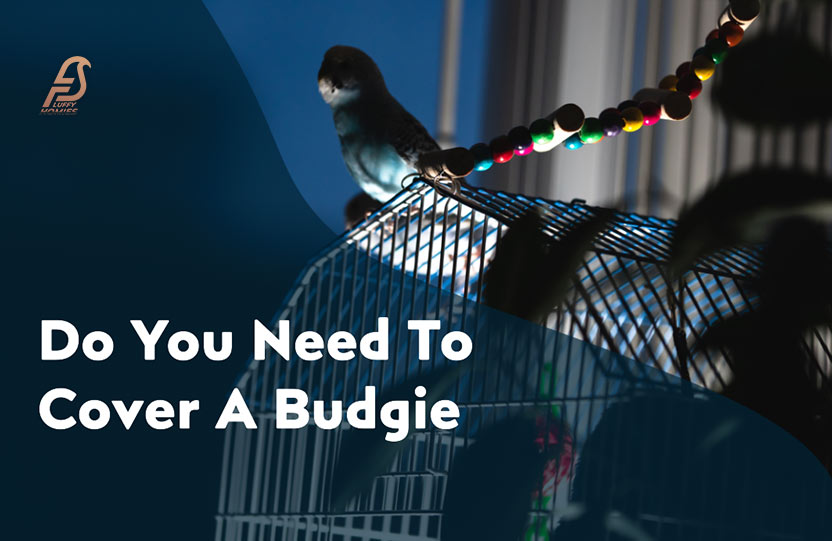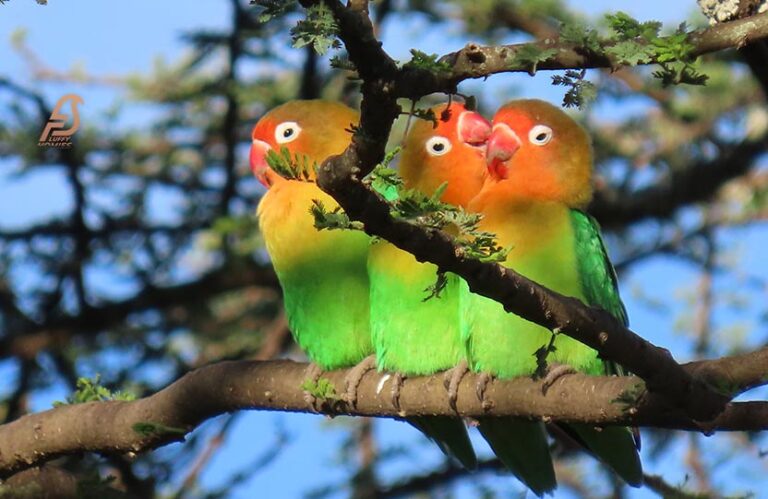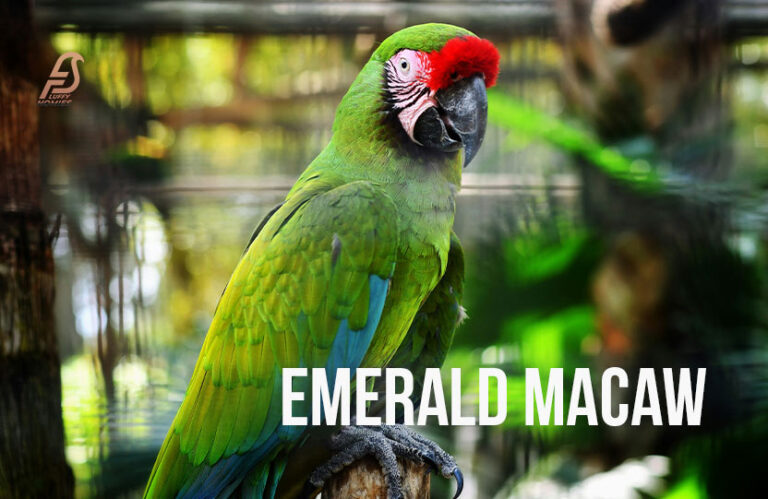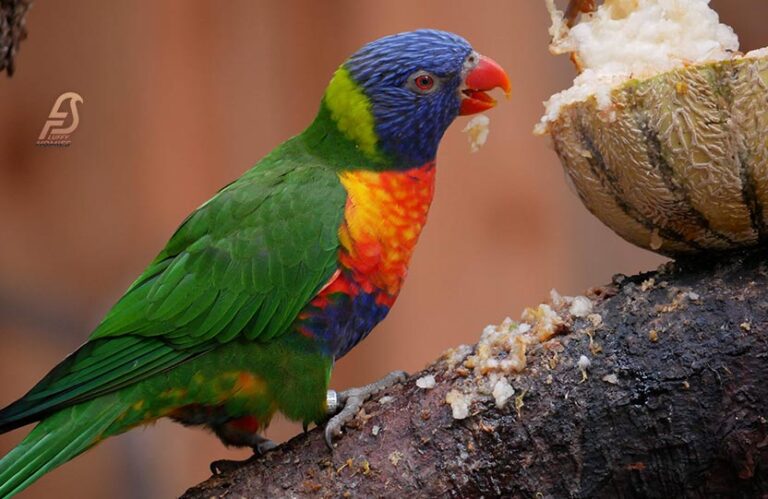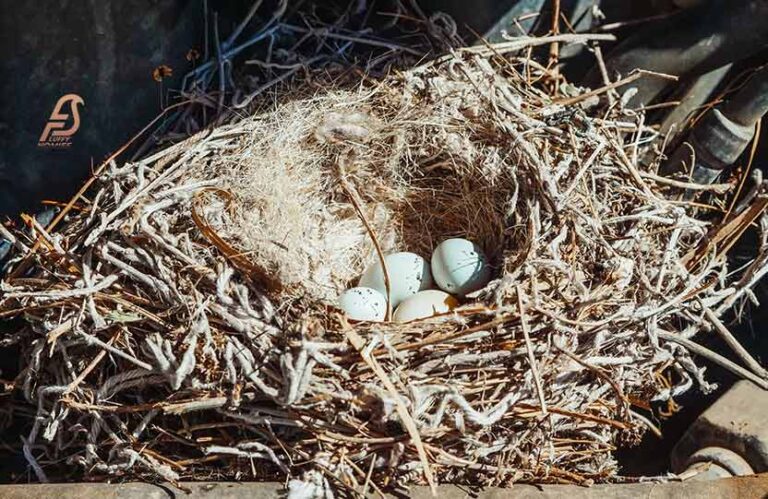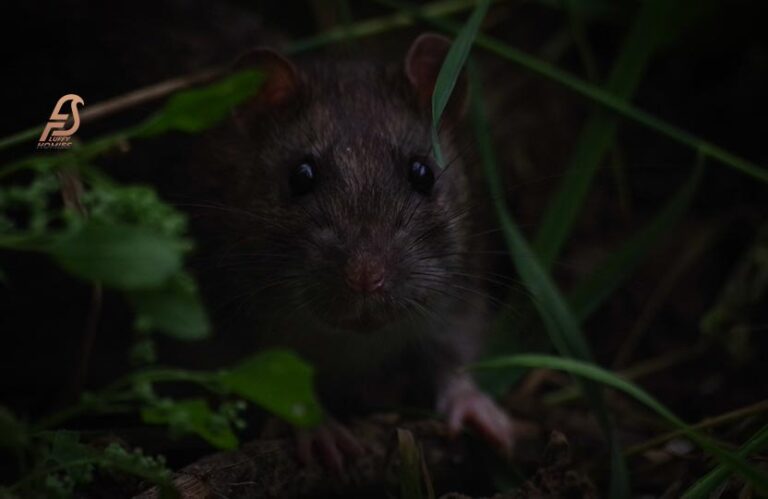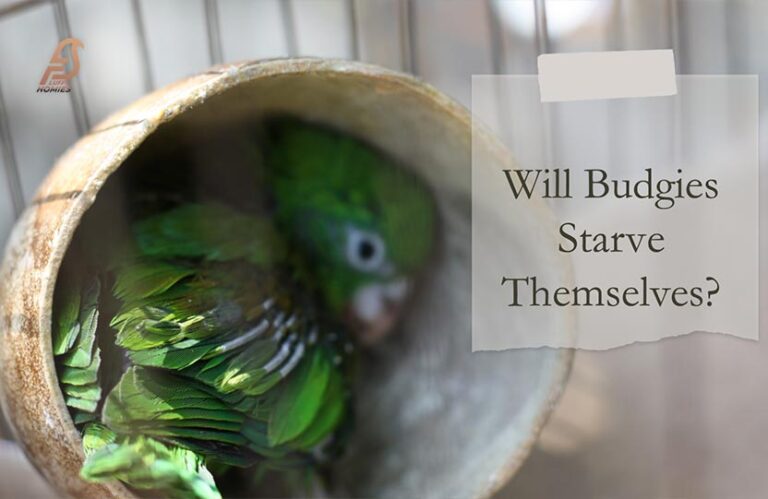Covering Up Your Budgie Cage At Night: Ultimate Sleep Hacks
As pet owners, it is natural to be concerned about the well-being of our feathered friends.
Budgies, also known as parakeets, are small, colorful birds that make great pets and love to eat jicama and more. However, like all living creatures, they need proper care and attention to thrive.
However, one common question that many budgie owners have is whether or not they need to cover their budgie’s cage at night.
In this article, we will explore this topic in detail and provide you with everything you need to know to ensure your budgie’s health and happiness.
Budgie Sleep Patterns
Budgies are diurnal birds, meaning they are active during the day and sleep at night. However, they have a unique sleep pattern that differs from humans.
Budgies need about 10-12 hours of sleep each night, but they don’t sleep all at once like humans do. Instead, they take naps throughout the day and night, totaling up to their required amount of sleep.
It’s important to note that budgies are sensitive to light and noise, so their sleep environment should be quiet and dark. Sometimes budgies also talk in their sleep and need to be covered.
Do Budgies Sleep in the Dark?
Yes, budgies do sleep in the dark. It’s important to provide them with a dark and quiet environment for a good night’s sleep.
Budgies are diurnal animals, which means they are active during the day and sleep at night.
In the wild, they would find a safe and sheltered spot to sleep in darkness, so replicating this environment in their cage can help them feel secure and get the rest they need.
It’s recommended to cover their cage with a dark cloth or blanket at night to block out any light and provide a sense of security.
With that question people also ask can budgies sleep with the TV on or not.
Do You Need to Cover a Budgie’s Cage at Night?
Some people choose to cover their budgie’s cage at night for a few different reasons:
Darkness
Covering a budgie’s cage can provide them with a dark and quiet environment, which can promote better sleep.
This can be especially important if you have a noisy household or if your bird is sensitive to light.
Security
Covering a budgie’s cage at night can give them a sense of security and help them feel more relaxed. This can be especially important for birds that are easily startled or anxious or you can add more budgies in one cage for feeling them relaxed.
Temperature Regulation
Covering a budgie’s cage can help regulate the temperature inside the cage, keeping your bird warm and comfortable during the night. But too much temperature can makes your budgies feet hot and you must avoid it.
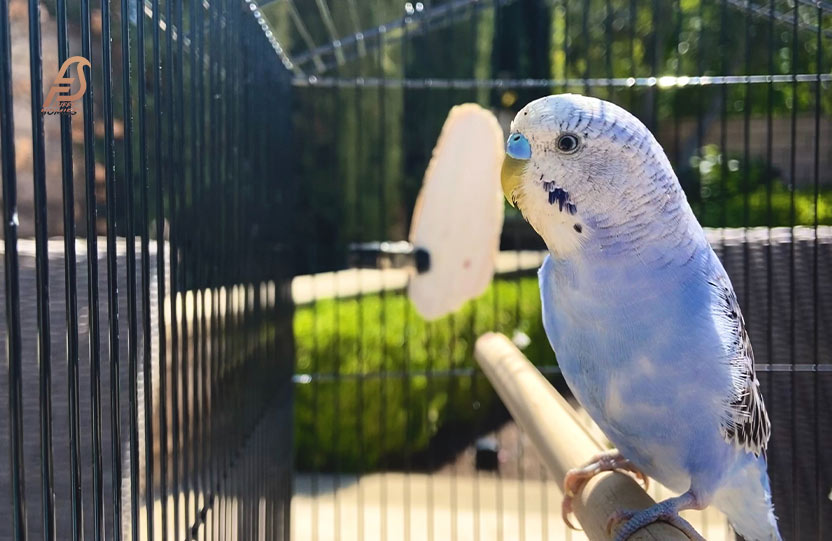
To Regulate Sleep Patterns
A budgie’s sleeping patterns can be regulated by covering its cage. As diurnal creatures, budgies spend the majority of their time active during the day and require 10 to 12 hours of sleep at night.
By covering their cage, you can let them know it’s time for bed and shield them from light and noise.
To Reduce Stress
Budgies are sensitive animals and can easily become stressed and due to stress budgies starve themselves. Covering their cage at night can reduce stress by providing them with a quiet and peaceful environment.
Factors to Consider Before Covering Your Budgie’s Cage at Night
Before covering your budgie’s cage at night, there are several factors you should consider.
For instance, you should consider your budgie’s sleeping habits, the temperature of your home, and the amount of light in your budgie’s sleeping area.
If your budgie is used to sleeping in a well-lit area, covering their cage may be more disruptive than helpful.
Also Check: Why Budgies Adjusting Their Crops?
How to Cover Your Budgie’s Cage at Night?
If you decide to cover your budgie’s cage at night, follow these guidelines:
1. Use A Light-Weight Fabric
Use a light-weight, breathable fabric such as a cotton sheet to cover their cage. Avoid using thick or heavy fabrics as they can trap heat and cause suffocation.
2. Cover Three Sides
Cover three sides of the cage, leaving one side open for ventilation. This will allow fresh air to circulate and prevent overheating.
3. Secure The Fabric
Secure the fabric to the cage with clips or clothespins, ensuring it is taut and does not sag. Avoid using tape or glue as it can be harmful to your budgie.
4. Remove The Cover in The Morning
Remove the cover in the morning to let in light and fresh air. This will signal to your budgie that it is time to wake up and be active.
5. Keep the Cage Away from Walls
When placing the cage, make sure to keep it away from walls and other obstacles. This will ensure that the cover doesn’t get stuck on anything or accidentally cover the ventilation holes.
6. Keep the Cage Away from Heaters
Finally, make sure to keep the cage away from heaters or other sources of heat. Overheating can be dangerous for your bird, so it’s important to keep them at a comfortable temperature at all times.
7. Make it a Routine
Budgies thrive on routine, so try to cover their cage at the same time every night. This will help them get into a regular sleep pattern and feel more secure.
Also Check: Why Does My Bird Hate Me
What Should You Cover Your Budgie’s Cage with?
There are several options when it comes to choosing how to cover a budgie cage. Among the options, towels, blankets, and cage covers are typically chosen.
Material selection must consider safety concerns for your budgie, including the absence of dangerous chemicals or components.
Safety for your pet bird comes down to proper attachment options. You can use a specific cage cover for bird cages instead.
Made from safe, breathable materials, these covers are attachable via clips or zippers to the cage. Covering a budgie’s cage with anything that may lead to suffocation must be avoided at all costs.
This could be extremely dangerous and even life-threatening for your bird and makes budgies to cry.
What’s the Best Time to Cover Your Budgie?
Depending on your budgie’s sleep timetable, when should you put a covering over their cage?
Every night, preferably before sunset, cover your budgie’s cage as a general rule of thumb.
Each night, budgies need around 10-12 hours of sleep to recharge their batteries. Covering the cage creates a better sleep environment by reducing noise.
Also Check: Why Is My Budgie Panting?
Why You Should Not Cover Your Budgie Cage at Night?
Covering a budgie’s cage can potentially cause a few different problems, including:
Overheating
Temperature fluctuations affecting budgies? Cover their enclosures to help with thermoregulation.
High temperatures within the cage can prove detrimental to your budgie’s health if left unchecked, causing heatstroke or dehydration that can lead to serious complications or even death.
Especially when hot weather sets in or a heater is used, close monitoring of the cage temperature is essential. But not too cold is good for budgies because it makes budgies feet cold and budgies getting sick.
Lack of ventilation
Airflow restriction and reduced fresh air intake result when covering the cage. Respiratory problems and related health difficulties emerge when there is poor ventilation and the cage is enclosed over time.
Through the cage, making sure there is an ample supply of fresh air circling is crucial, regardless of whether covered at night or not.
Fear and stress
For other budgies though, the covered location could evoke feelings of fear or anxiousness. Avoid covering the cage to ensure your budgie feels comfortable.
Difficulty seeing
Through their vision, budgies determine how they move around and sense of safety. Which can cause confusion or disorientation by limiting their visibility, covering the cage can make it hard for them.
A dense, impenetrable obstacle that excludes all light makes this statement particularly relevant. With regards to covering the cage, ease of sight and respiratory function must be considered.
Also Check: Why Won’t My Parakeet Drink Water?
Signs That Your Budgie is Not Getting Enough Sleep
If your budgie is not getting enough sleep, it may show several signs, such as:
- Increased irritability
- Feather plucking
- Decreased appetite
- Lack of energy or lethargy
- Difficulty perching
- Flicking their wings or tail
- Falling off their perch
Tips for Making Your Budgie’s Sleep Environment More Comfortable
In addition to covering your budgie’s cage at night, there are other things you can do to make their sleep environment more comfortable.
For example, you can provide your budgie with a cozy nesting box or a soft perch. You can also use a night light to provide a soft glow that can help them feel more secure.
Conclusion
Covering your budgie’s cage at night can provide them with a sense of security and help them to regulate their sleep-wake cycle.
But sometimes covering your budgie’s cage at night is not necessary and can even have negative effects on your budgie’s health and wellbeing.
It is important to choose a safe and breathable material to cover your budgie’s cage with and to make sure that it is securely fastened to the cage.
You should cover your budgie’s cage at the same time every night and make sure that they have enough time to rest.
By following these simple guidelines, you can help to ensure that your budgie is happy, healthy, and well-rested.
FAQs
What time should I cover my bird’s cage at night?
It is recommended to cover your bird’s cage at night at a consistent time, usually around sunset, for 10-12 hours of uninterrupted sleep.
How do you take care of a budgie at night?
Provide a comfortable and dark sleeping environment for your budgie at night. Cover their cage and ensure they have access to fresh water and food. Avoid disturbing them.
Should I let my budgie sleep outside his cage?
It is not recommended to let your budgie sleep outside of its cage as it can be dangerous and increase the risk of injury or illness.
Do birds like being covered at night?
Most birds do not require or prefer to be covered at night, as they have evolved to tolerate natural darkness. Exceptions include some domesticated birds and young chicks.
